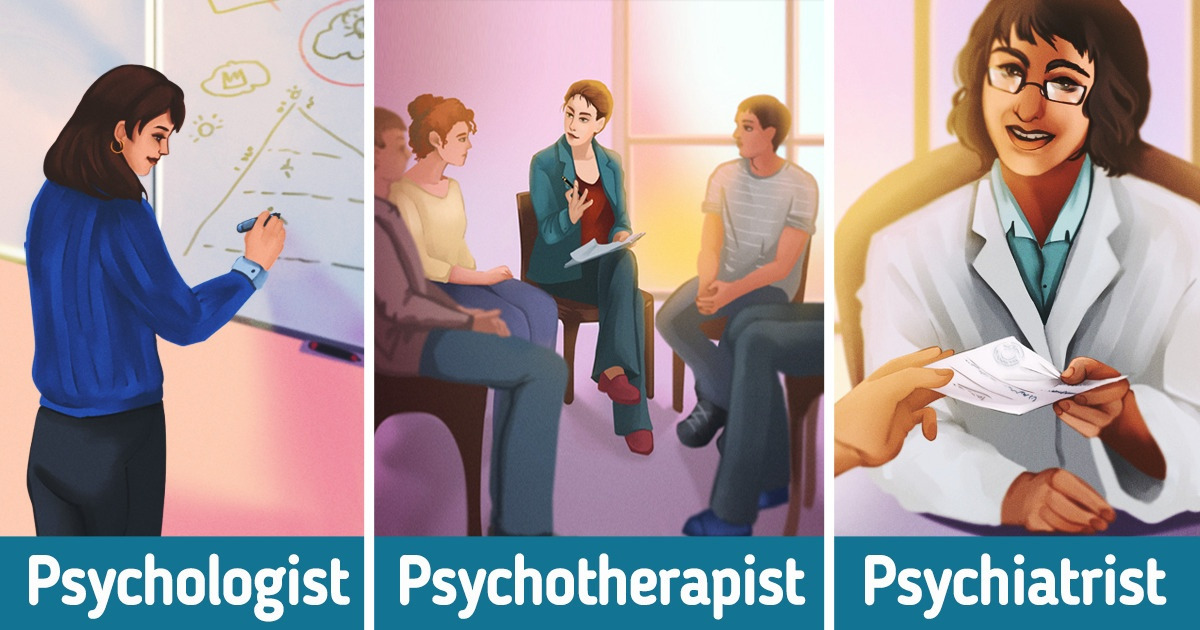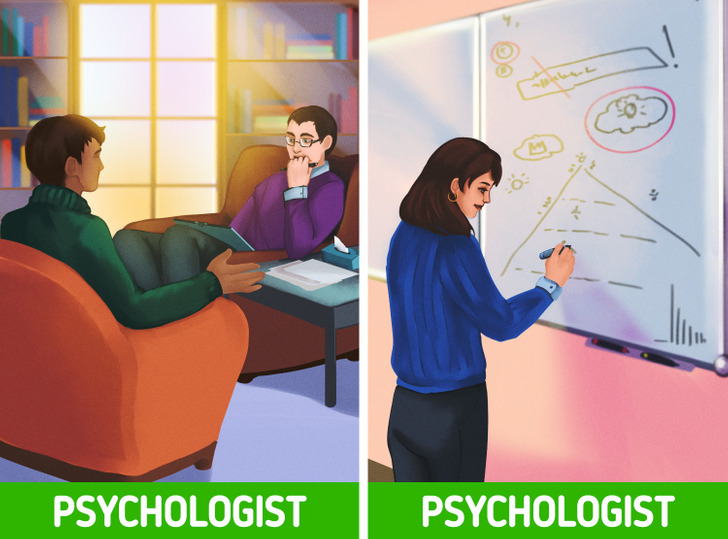How to Tell Psychologists From Psychotherapists and Psychiatrists

Sometimes, similar names of specialists can be hard to memorize. People often confuse psychotherapists, psychologists, and psychiatrists.
5-Minute Crafts is going to explain the differences between these professions and what they do.
Psychologist

Psychologists study the way people think, behave, and interact. These professionals can use their knowledge to help their clients or to aid in further research of the human mind. The main difference between psychologists and other experts in this area is that they don’t have a medical degree.
Psychologists work with difficult losses, psychological trauma, and relationship problems.
Psychotherapist

Psychotherapists can work with people one on one or with groups, couples, and families. They usually offer help with overcoming stress, difficulties in relationships, and emotional problems. Like psychologists, psychotherapists can’t prescribe medication.
There are a lot of branches of psychotherapy, and each of them solves certain problems:
- Psychoanalysis and psychodynamic therapies focus on changing problematic behavior, feelings, and thoughts by discovering their unconscious meanings and motivations. This type of therapy includes a close partnership between the specialist and the patient.
- Cognitive therapy helps people understand their thoughts, not their actions. Specialists believe that it’s a problem with thinking that leads to problematic emotions and actions, and by changing our thoughts, we can change our behavior.
- Behavior therapy focuses on learning about the development of both normal and abnormal behavior.
- Humanistic therapy emphasizes people’s capacity to make rational choices and develop to their maximum potential. Concern and respect for others are also important themes here.
- Holistic therapy is a blend of elements from different approaches based on the needs of each client.
Psychiatrists

Psychiatrists focus on the prevention, diagnosis, and treatment of mental, behavioral, and emotional disorders. Because they have a medical degree, they can prescribe patients medications.
They specialize in treating serious medical problems. They can also provide urgent medical care for people that find themselves in difficult situations and are dealing with mental issues. They help manage long-term mental health conditions as well.